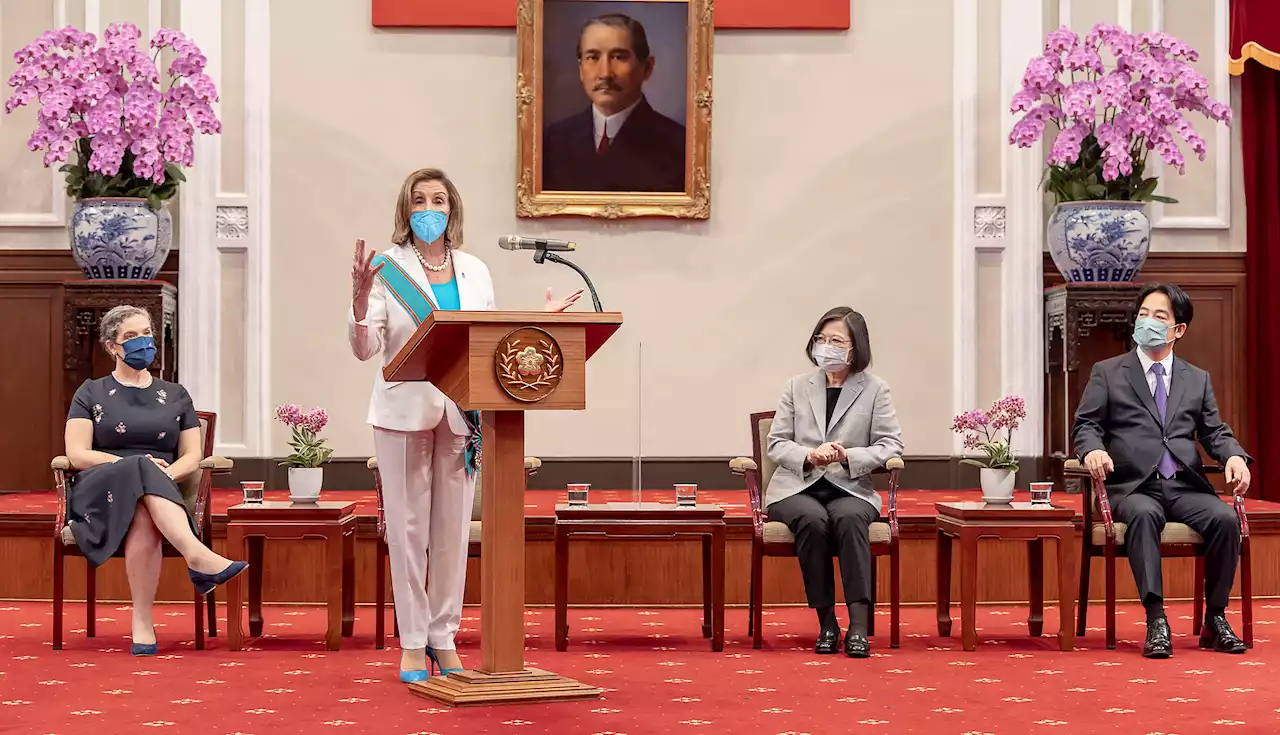The fears driving U.S. policy toward China draw from the deep racist currents that have always poisoned this society.
Is the increasing influence of China in international affairs a threat to world order? The United States thinks so, and so does Britain, its closest ally. Indeed, the U.S.-China rivalry is likely to dominate world affairs in the 21st century. In this geostrategic game, certain states outside the western security community, such as India, are expected to play a key role in the new stage of imperialism under way. The U.S.
There is never a dearth of terrifying enemies, but the “heathen Chinese” have always conjured up special fears. Fear of China is more visceral, drawing from the deep racist currents that have poisoned American society since its origins. In the 19th century, Chinese people were kidnapped and brought to work as virtual slaves to build railroads as the nation expanded to its “natural borders”; the slur that was applied to them was an import from Britain, where Chinese workers also served as virtual slave laborers generating Britain’s wealth.
Let’s turn from understandable paranoia about the poor who want to plunder the rich to the second topic: world order and imperialism in the 21st century, and the intense U.S.-U.K. geopolitical concerns about an emergent China. Conflict over heartland unification has been a significant theme in post-WWII history. During the Cold War years, there were some European initiatives to construct a unified Europe incorporating Russia that would be an independent force in world affairs. Such ideas were advanced most prominently by Charles de Gaulle, with echoes in Germany. They were beaten back in favor of the Atlanticist system, NATO-based, largely run from Washington.
The temptation for Europe to join the BRI system, already strong, will likely intensify. The German-based integrated production system in Europe, stretching from the Netherlands to Russia’s former Eastern European satellites,in the world. It relies heavily on the huge export market and investment opportunities in China, and on Russia’s rich natural resources, even including metals needed for transition to renewable energy.
China-Russia ties have deepened after Russia’s invasion of Ukraine, though there are probably limits to the partnership. In any case, is there something else in this strategic relationship between two autocratic nations besides the concern for limiting U.S. power and influence? And to what extent could the U.S.
Putin and associates appear to have visions of a Russian sphere occupying an independent place between the Atlanticist and China-based global systems. That does not seem very likely to transpire. More likely China will accept Russia as a subordinate, providing raw materials, advanced weapons, scientific talent, maybe more.
Österreich Neuesten Nachrichten, Österreich Schlagzeilen
Similar News:Sie können auch ähnliche Nachrichten wie diese lesen, die wir aus anderen Nachrichtenquellen gesammelt haben.
 Pelosi says US will not abandon Taiwan as China protestsU.S. House Speaker Nancy Pelosi said today that she and other members of Congress are visiting Taiwan to show they will not abandon their commitment to the self-governing island.
Pelosi says US will not abandon Taiwan as China protestsU.S. House Speaker Nancy Pelosi said today that she and other members of Congress are visiting Taiwan to show they will not abandon their commitment to the self-governing island.
Weiterlesen »
 Pelosi says US will not abandon Taiwan despite warnings from ChinaChina, which claims Taiwan as its territory and opposes any engagement by Taiwanese officials with foreign governments, announced multiple military exercises around the island.
Pelosi says US will not abandon Taiwan despite warnings from ChinaChina, which claims Taiwan as its territory and opposes any engagement by Taiwanese officials with foreign governments, announced multiple military exercises around the island.
Weiterlesen »
 UK's Johnson Matthey, Sinopec unit explore decarbonisation options in ChinaBritish chemicals maker Johnson Matthey Plc said on Wednesday it was in in talks with the investment arm of China's Sinopec for exploring a collaboration in decarbonisation technologies in China.
UK's Johnson Matthey, Sinopec unit explore decarbonisation options in ChinaBritish chemicals maker Johnson Matthey Plc said on Wednesday it was in in talks with the investment arm of China's Sinopec for exploring a collaboration in decarbonisation technologies in China.
Weiterlesen »
 Pelosi Says US Will Not Abandon Taiwan as China ProtestsU.S. House Speaker Nancy Pelosi, meeting leaders in Taiwan despite warnings from China, said Wednesday that she and other members of Congress in a visiting delegation are showing they will not abandon their commitment to the self-governing island.
Pelosi Says US Will Not Abandon Taiwan as China ProtestsU.S. House Speaker Nancy Pelosi, meeting leaders in Taiwan despite warnings from China, said Wednesday that she and other members of Congress in a visiting delegation are showing they will not abandon their commitment to the self-governing island.
Weiterlesen »
 China July services activity expands at quickest pace in 15 months - Caixin PMIChina's services activity grew at the fastest rate in 15 months in July as easing COVID curbs boosted consumer confidence, but foreign demand fell and companies cut staff for the seventh month in a row, a private-sector survey showed on Wednesday.
China July services activity expands at quickest pace in 15 months - Caixin PMIChina's services activity grew at the fastest rate in 15 months in July as easing COVID curbs boosted consumer confidence, but foreign demand fell and companies cut staff for the seventh month in a row, a private-sector survey showed on Wednesday.
Weiterlesen »
